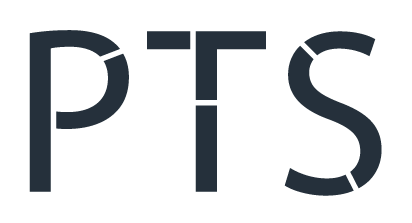
Tech Insights
Welcome to the PTS Technology Blog
Outsourced IT Support vs In-House IT Teams in Hong Kong: Which Is Right for Your Business?
Should your Hong Kong business hire an in-house IT team or outsource to a managed IT provider? Compare costs, capabilities, and scalability to find the right IT support model for your company.
How to Plan an IT Budget for Your Hong Kong Office in 2026: A Practical Guide
Learn how to build a practical IT budget for your Hong Kong office in 2026. This guide covers hardware refresh cycles, Microsoft 365 costs, cybersecurity investment, and outsourced IT support to help SMEs plan smarter technology spending.
Azure Cloud Migration for Hong Kong Businesses: What You Need to Know Before You Move
Planning an Azure cloud migration in Hong Kong? Learn how to assess your cloud readiness, choose the right migration approach, manage costs, and avoid common pitfalls when moving to Microsoft Azure.
How to Protect Your Business from Phishing Attacks in Hong Kong: A Practical Guide
Learn how to protect your Hong Kong business from phishing attacks with practical security measures including email filtering, multi-factor authentication, staff training, and incident response planning.
19 Cybersecurity Policies Every Business Needs: From the Boardroom to the Desktop
Cybersecurity is no longer just an IT issue; it is a board-level responsibility. For companies in Hong Kong and across Asia, the rise in cyberattacks, data breaches and compliance obligations makes a robust cybersecurity policy framework essential.
Microsoft 365 in China in 2025, a practical decision guide for global IT
Discover the key differences between Microsoft 365 Global and Microsoft 365 operated by 21Vianet in China. Our 2025 decision guide explains tenant options, identity and network design, data residency, Teams interop, and compliance with China’s PIPL. Learn when to stay on a global tenant, when to adopt a dual-tenant strategy, and how to build a reliable, compliant Microsoft 365 rollout for your China offices.
ChatGPT Ban in Hong Kong and China (iOS26 update Sep 2025)
Learn about the ChatGPT ban in Hong Kong 2025, iOS 26 exclusion, and Grok access. Download PTS Consulting's free guide for AI alternatives and expert support.
Streamlining IT Procurement for MNCs in APAC
Discover how PTS Managed Services simplifies IT procurement for MNCs in Hong Kong, China, and Singapore with expert solutions.
How to Choose the Right IT Support Provider in Hong Kong: A Business Owner’s Guide
Discover how to choose the right IT support provider in Hong Kong. Learn what to look for and how PTS delivers expert, certified IT services locally.
iOS 26 and the future of on‑device AI – what Hong Kong companies need to know
Discover what iOS 26 means for on-device AI and Apple’s evolving partnership with ChatGPT. Learn why ChatGPT integration doesn’t work natively in Hong Kong and how businesses can prepare for Apple’s next major AI upgrade.
Microsoft Teams Migration Checklist: 7 Critical Steps Most People Miss
Planning a Microsoft Teams migration? Avoid common pitfalls with this step-by-step checklist covering everything from permissions and data cleanup to post-migration optimisation. Ideal for tenant-to-tenant Microsoft 365 migrations in Hong Kong and across Asia.
Microsoft M365 in China: What You Need to Know
What You Need to Know About Microsoft 365 in China. Microsoft 365 (M365) is a widely adopted suite of cloud-based productivity tools, combining applications such as Word, Excel, PowerPoint, Outlook, Teams, and OneDrive. There are some important points which businesses need to know about using M365 in China.
Top 10 Things You Need Know Before Using a VPN in China
PTS brings you the top 10 Things You Need to Know About VPN services in China including recommendations for a VPN that works in China. With strict regulations on VPN usage and emerging alternatives like SD-WAN
Planning an Office Move?
Planning an office move? This complete IT infrastructure checklist helps your business avoid downtime by covering cabling, Wi-Fi, AV, security, and relocation planning. Get expert tips from PTS for a seamless transition.
Should Your Business Upgrade to Wi-Fi 7?
Is your business ready for Wi-Fi 7? Discover the key benefits, challenges, and upgrade considerations for adopting the latest wireless standard. Learn how PTS helps you plan and deploy future-ready Wi-Fi networks with confidence.
Why you have Wi-Fi performance problems
Experiencing slow or unreliable WiFi in your office? Poor performance can impact everything from video calls to cloud access. Learn the common causes of business WiFi issues, how to diagnose them, and the steps you can take to get your network performing the way it should.
iOS19/iOS26? Rumours & AppIe Intelligence in Hong Kong
Apple’s iOS 19 promises major AI-powered features via Apple Intelligence—but will they work in Hong Kong? Explore key updates, regional limitations, and business risks.
US China Trade War
The trade war between the United States and China continues to intensify, and while Hong Kong remains a separate customs territory, the city sits uncomfortably close to the heart of the geopolitical and economic fallout.


















